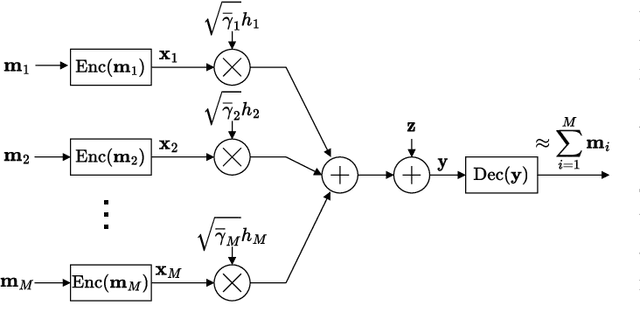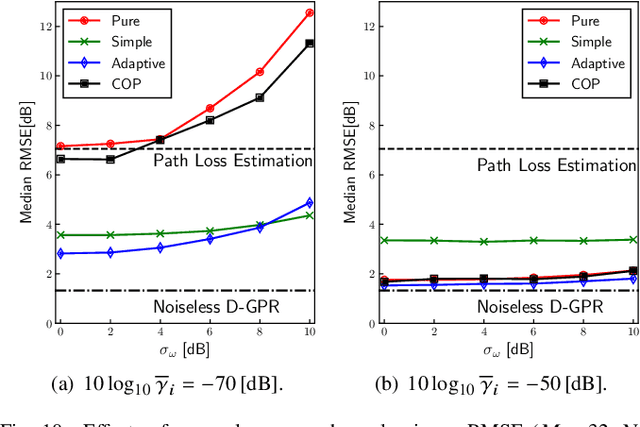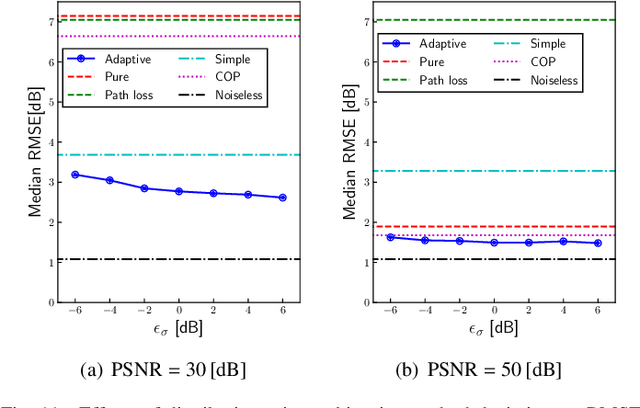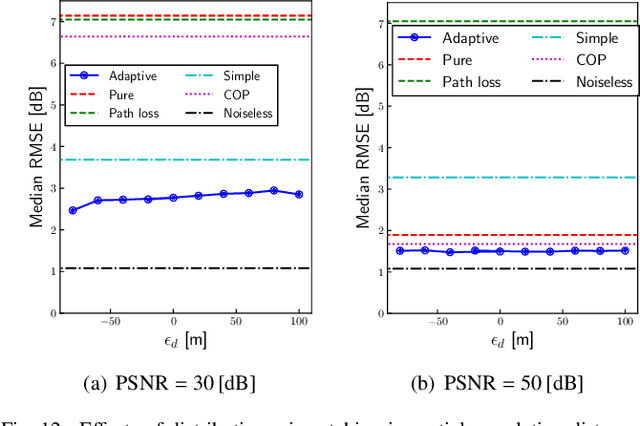Adaptively Weighted Averaging Over-the-Air Computation and Its Application to Distributed Gaussian Process Regression
Paper and Code
Jan 29, 2025



This paper introduces a noise-tolerant computing method for over-the-air computation (AirComp) aimed at weighted averaging, which is critical in various Internet of Things (IoT) applications such as environmental monitoring. Traditional AirComp approaches, while efficient, suffer significantly in accuracy due to noise enhancement in the normalization by the sum of weights. Our proposed method allows nodes to adaptively truncate their weights based on the channel conditions, thereby enhancing noise tolerance. Applied to distributed Gaussian process regression, the method facilitates low-latency, low-complexity, and high-accuracy distributed regression across a range of signal-to-noise ratios. We evaluate the performance of the proposed method in a radio map construction problem, which is a task for visualizing the radio environment based on limited sensing information and spatial interpolation. Numerical results demonstrate that our approach not only maintains computational accuracy in high noise scenarios but also achieves performance close to ideal conditions in high SNR environments. This advancement holds significant implications for the deployment of real-time, large-scale IoT systems, providing a scalable solution to enhance reliability and efficiency in data-driven environmental monitoring.
 Add to Chrome
Add to Chrome Add to Firefox
Add to Firefox Add to Edge
Add to Edge